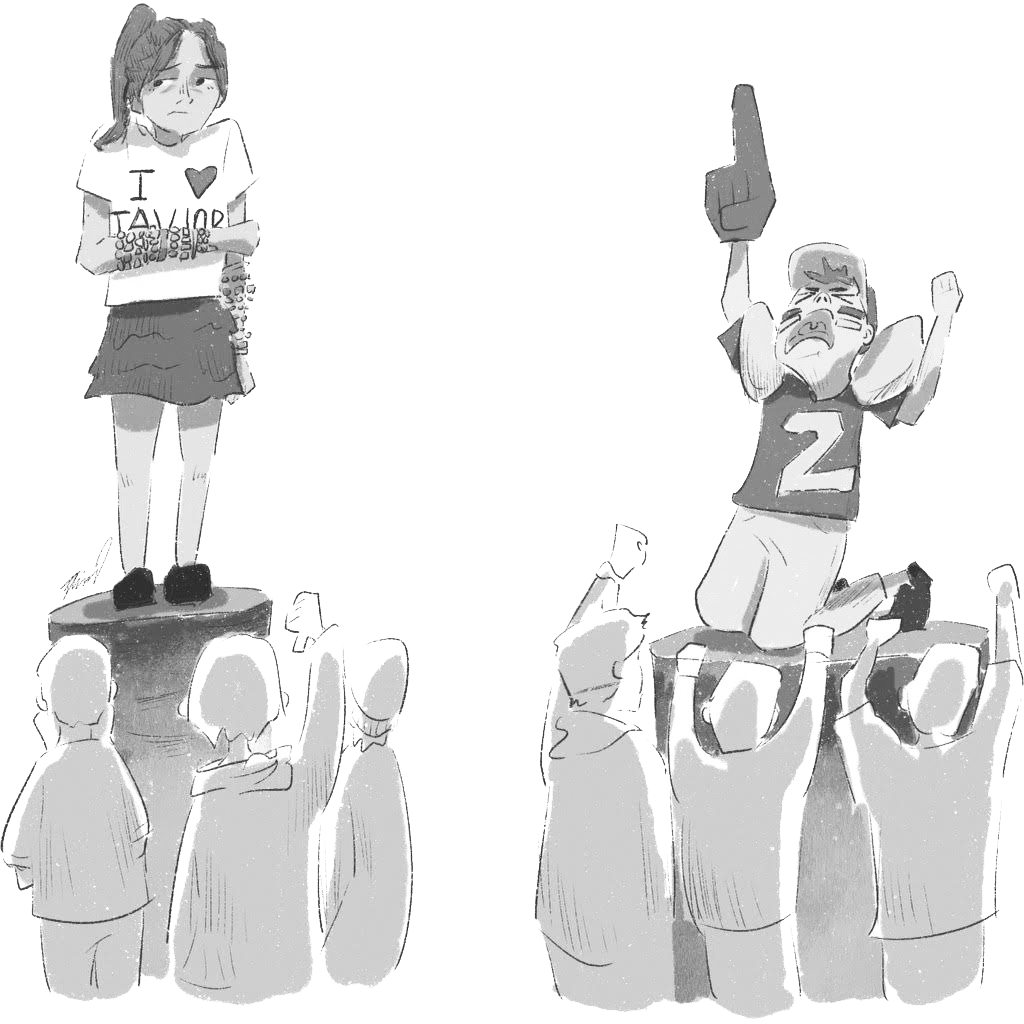“Name five songs.”
“What?” I ask, confused.
“Well, you have a Fleetwood Mac shirt on, and if you are a true fan then you could name five of their songs,” said a girl in my math class.
Even though I could most certainly name five songs of theirs and probably even list all the songs on their album, “Rumors”, I laughed off the accusation.
However, at a table nearby, there was a boy wearing a New York Mets jersey and yet that girl, nor anyone else, asked him to “name five players.” Instead everyone around him just assumed he was a fervent fan.
At first glance, the comment seems pretty harmless — I merely disregarded it as something said in passing. While her insinuation could just have been an ill-thought-out mistake, I’ve noticed that plenty of people tend to invalidate female interests like this a lot.
Not all sports fans are men, and not all fangirls are women, but members of those two groups are viewed as traditionally masculine and feminine, and that is where the disparity arises.
In another instance, I was scrolling through social media and came across a video of a TikTok creator criticizing Taylor Swift being at the Super Bowl LVIII. They were saying that she was “taking up the players screen time,” and “ruining football.” Swifties online received a massive backlash for Swift attending the game. Attending. Not even performing, or making a scene but by merely being there.
However, men have been praised for very similar things: their love and appreciation of respective sports teams.
Just recently, I was reminded of when Bears fans attended a game against the Browns — in Cleveland — shirtless. In mid-December, these fans painted the letters B, E, A, R, and S, on their bare chests when it was 27 degrees there at the time. As for the backlash of this example of fandom, men were defending the fans’ actions saying that it’s “the love of the game.”
From Beatlemania to Beliebers, fangirls have given platforms to some of the most influential artists of the world. However, they are too often perceived as screaming, hysterical masses.
From Bengals to Broncos, sports fans have filled stands and paid thousands of dollars to fund some of the most famous NFL teams. However, most people deem these superfans are passionate and committed.
All this goes to say that after the comment about my shirt, I began to realize more and more how similar fangirls and sports fans are.
In essence, the two worlds are seemingly the same — involved fans that can, sometimes, go a little too far. However, the main difference between the two is the way that we talk about them: women are seen as fanatical, men are seen as passionate.
I’m not saying that we should ban the word “fangirl,” but I am saying that by using it we teach young women that they are less capable of rationality than men and therefore less deserving of intellectual respect.
Ultimately, I believe that we should stop comparing the two — sports fans and fangirls — because they are just equally as crazy.






